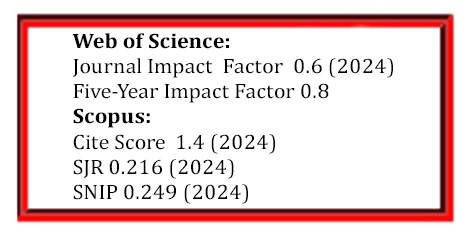Preparation and Characterization of Nano SiO2 for Bioactive Glasses Application through High Energy Ball Milling
DOI:
https://doi.org/10.5755/j02.ms.39486Keywords:
bioactive glass, silicon dioxide, ball milling, TEM, SEM, nanoparticleAbstract
Bioactive glasses 58S in the SiO2-CaO-P2O5 combination have been successfully employed as bone-filling materials in orthopedic and dental surgery, but their low mechanical strength limits their utilization in load-bearing positions. Various methods for the synthesis of bio-glass and its composites have been explored to present, including traditional melt quench, flame synthesis, sol-gel, and microwave irradiation. Various groups have looked at bio glass synthesis. These synthesis methods are relatively successful, however they have a high preparation cost. In order to lower the expense of preparation, Bio-active glass compositions will indeed be Nano sized, which will improve bonding ability with lowering production costs. In this present study, Nano-sized silicon dioxide powder was manufactured through ball milling in order to achieve the best possible combination between mechanical and biological attributes. The key benefit is that by machining, the density is also lowered. It provides extra assistance in mixing and connecting with other particles. The nano silicon dioxide is produced by ball milling at varied rotational speeds like 100 rpm, 200 rpm, and 300 rpm with two different durations as 2 and 4 h. The six nanopowder samples were obtained and densities were analyzed with TEM, XRD and SEM for each samples. This study proved, based on the aforementioned observations, that the proposed ball milling method for nanoparticle production is capable which would be significantly beneficial in the manufacturing of bioactive glasses.
Downloads
Published
Issue
Section
License
The copyrights for articles in this journal are retained by the author(s), with first publication rights granted to the journal. By virtue of their appearance in this open-access journal, articles are free to use with proper attribution in educational and other non-commercial settings.



